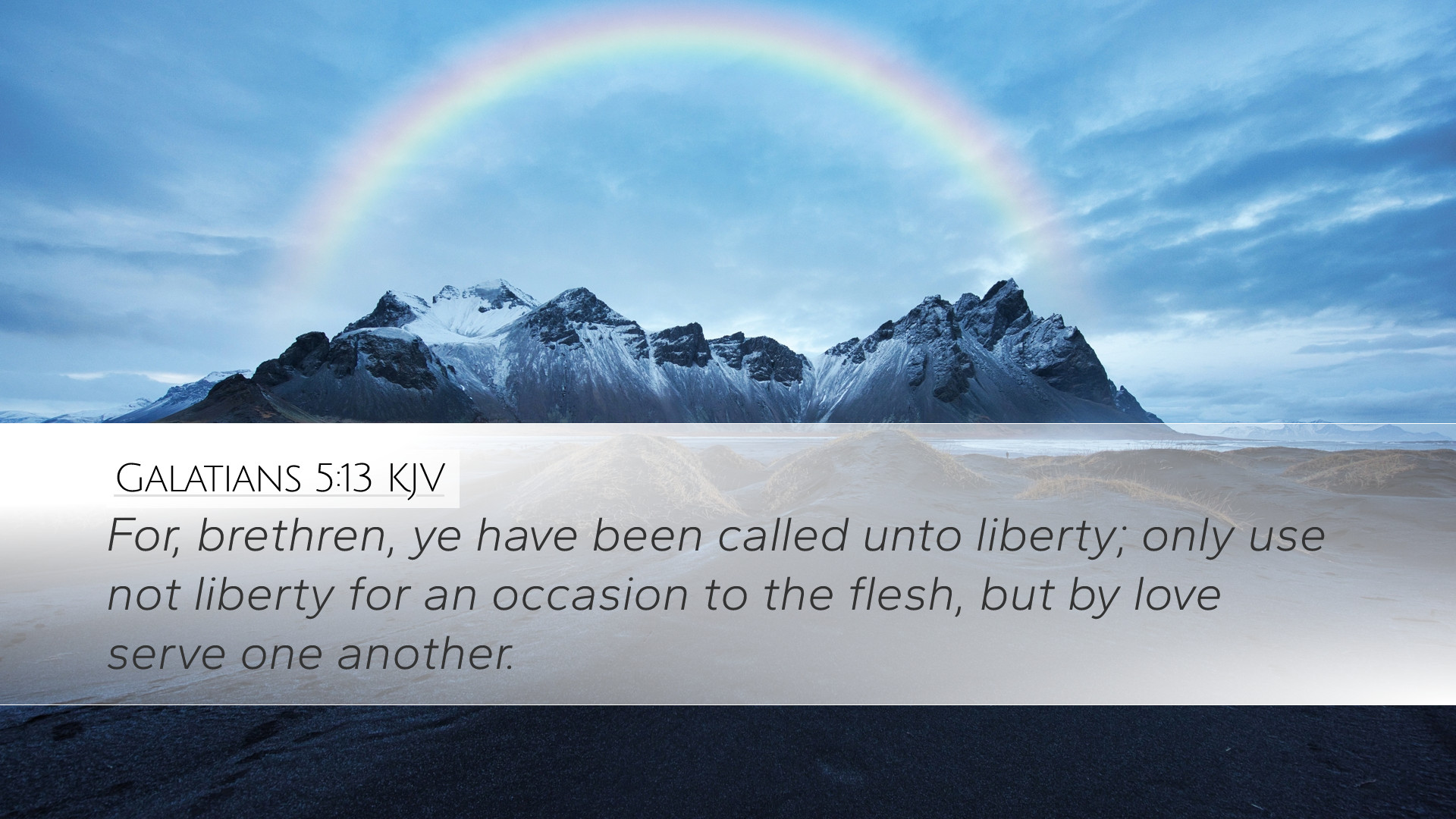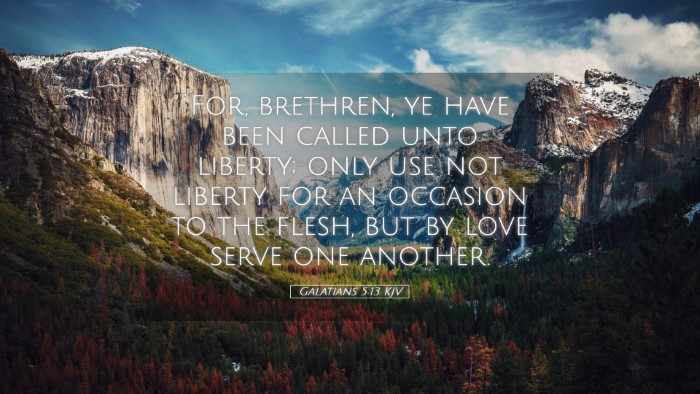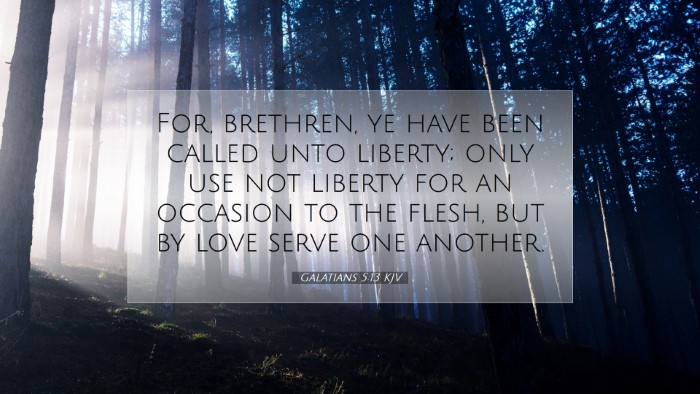Commentary on Galatians 5:13
Introduction
Galatians 5:13 is a pivotal verse within Paul’s argument in the epistle to the Galatians, emphasizing the balance between freedom in Christ and the call to love through service. This passage serves as an excellent grounding point for understanding the nature and purpose of Christian freedom.
The Verse
Galatians 5:13 (KJV): "For, brethren, ye have been called unto liberty; only use not liberty for an occasion to the flesh, but by love serve one another."
Verse Analysis
1. Understanding Christian Liberty
Matthew Henry comments on the essence of Christian freedom, noting that believers are called to liberty: a freedom that is not merely the absence of restraint but a liberation from sin and the law. This liberty is derived from Christ's sacrifice and is meant to empower believers to live in a manner that glorifies God.
2. The Danger of Misusing Freedom
Paul warns against using this freedom as a license to indulge in sinful desires. Albert Barnes elaborates on this caution, suggesting that true freedom should lead one away from sin, not towards it. The distinction between lawful use of freedom and indulging the flesh is crucial for a balanced Christian life.
Exegesis of Key Phrases
-
"Ye have been called unto liberty"
Adam Clarke mentions that this calling to liberty is a divine invitation, highlighting that believers do not earn their freedom but receive it as a gift. The call implies responsibility; with freedom comes the obligation to use it wisely.
-
"Use not liberty for an occasion to the flesh"
This phrase challenges believers to evaluate their actions against the standard of love. Barnabas indicates that exploiting freedom for selfish gain contradicts the very purpose of true liberty, which is to serve others in love.
-
"By love serve one another"
This imperative serves as the crux of the Christian experience. Henry emphasizes that serving others in love fulfills the law of Christ. The freedom granted to believers should manifest in practical acts of kindness and service, reflecting God's love through their lives.
Theological Implications
1. Freedom and Responsibility
Christian freedom is not a status that permits ethical ambiguity. Rather, it comes with the responsibility to act wisely and benevolently toward others. Pastoral teaching should focus on the weight of this responsibility, warning against potential pitfalls of spiritual pride and selfish behavior.
2. The Role of Love
Love is positioned as the guiding principle of a believer’s life. Clarke outlines that this love is active and practical, not merely emotional or theoretical. It should permeate relationships within the church and community, resulting in tangible acts of service.
Practical Applications
For pastors and church leaders, this verse can be a foundational text for teaching on Christian ethics and communal life. Consider implementing the following:
-
Foster a Community of Service:
Encourage members to identify their spiritual gifts and use them to serve others actively, creating opportunities that put this scriptural mandate into practice.
-
Teach on the Balance of Freedom and Accountability:
Regularly revisit the message of Christian liberty alongside discussions of accountability within the body of Christ. This approach nurtures a holistic understanding of what it means to be free in Christ.
-
Implement Love-Centric Ministries:
Design outreach programs that are centered on serving others, demonstrating the genuine application of love that Christ calls for in this verse.
Conclusion
Galatians 5:13 invites believers to engage deeply with their faith, urging them to understand the profound implications of their liberty in Christ. It challenges them to translate that liberty into expressions of love and service. As pastors, theologians, and scholars, embracing this teaching can lead to stronger, more vibrant church communities characterized by authentic love in action.


